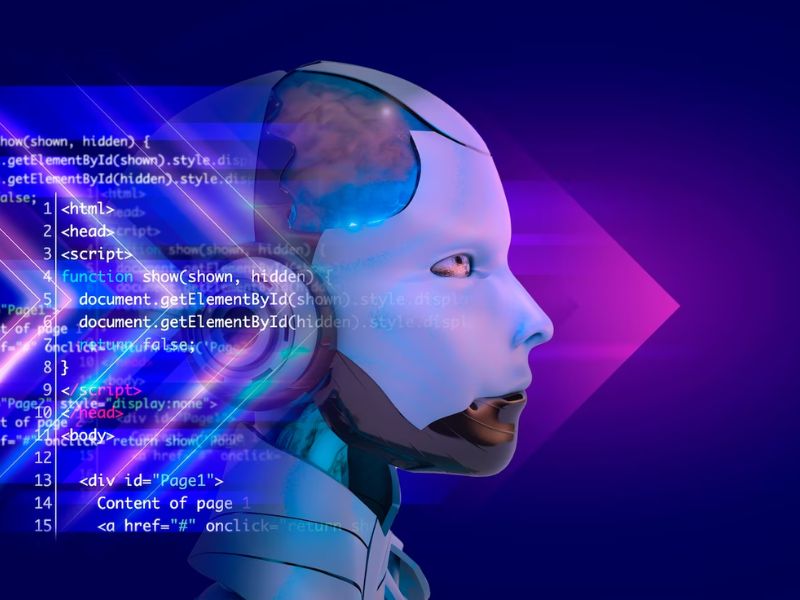AI refers to the ability of machines to carry out tasks that typically require human intelligence, such as making decisions, recognizing speech, and perceiving visuals. While AI has diverse applications across various industries, cybersecurity stands out as a particularly important and challenging field. Cybersecurity aims to safeguard online systems and data from malicious attacks and unauthorized access. However, with the increasing sophistication and frequency of cyber threats, traditional security methods alone are insufficient for effective protection. This is where AI comes in to enhance cybersecurity by automating and improving the detection, prevention, and response to cyberattacks. Explore the intriguing realm of artificial intelligence in cybersecurity below!
What is Artificial Intelligence in Cybersecurity?
The arrival of AI is ushering in a competitive era of unprecedented processing power and learning capacity. And it will fundamentally alter our world. Machines with this talent can act like humans without really being human. Combine it with cybersecurity, a method of preventing attacks on computer systems, and you have artificial intelligence in cybersecurity. AI in cybersecurity incorporates AI into existing safety measures and practices to better detect, control, and respond to cyber-attacks. It’s about giving your defensive systems the ability to learn from mistakes, adjust to new circumstances instantly, and even predict new dangers.

Role of artificial intelligence in cyber security
Think about a goalkeeper who doesn’t just protect but also learns how each attacker usually shoots, knows which way the wind is blowing, and can tell where the ball will go before it’s even kicked. That’s the benefit of AI in network security. With AI, your defense may shift from reactive to proactive, allowing for smarter decisions and excellent resistance to cyberattacks. No business, no matter its size or sector, can afford to ignore the importance of artificial intelligence in cybersecurity. It’s a powerful response to the increasing complexity of cyberattacks and the next-generation defense for your digital assets.
>>> Read more: Future of Artificial Intelligence: How Will It Change Industries?
Advantages of AI in Cybersecurity
Keeping data safe in hybrid cloud environments
Shadow data can be found, irregular data access can be monitored for, and cybersecurity experts may be immediately notified of any concerns posed by anybody with access to the data or sensitive information thanks to AI solutions.
Improved threat detection with prioritized strength
To speed up alert investigations and triage by an average of 55%, AI-powered risk analysis can generate incident summaries for high-fidelity warnings and automate incident replies. The use of AI aids in the detection of vulnerabilities and the prevention of cybercrime.
Ensuring protection while still letting users view information
AI models look at each login try to see how risky it is. They use the way people behave to check if they are who they claim to be. This can make things more secure and easier for users. Also, it can cut the cost of fraud by as much as 90%. AI systems can also help fight scams, harmful software, and cybercrime.

Benefits of artificial intelligence in cyber security
Challenges of AI Cybersecurity Implementation
Quality Of Data
Good, strong data is the backbone for training AI systems better. Yet, several companies suffer from a lack of this important resource owing to data silos, privacy concerns, and various rules and policies.
A multinational company might find it a challenge to gather and straighten out security logs from around the world due to variations in systems and forms. Inadequate data limits the function of models and makes threat detection and prevention more difficult.
>>> Read more: Artificial Intelligence in the Workplace: Top 11 Tools to Do Your Tasks with Ease
Adversarial Attacks
Attackers are getting smarter about doing things and using asymmetrical strikes to trick AI systems. In adversarial attacks, the input data is changed to trick the programs and avoid being caught. Businesses must keep spending money on research and development to make their AI models more resistant to these threats.
Also, AI-powered defense systems often give false positives, which means they mistakenly see harmless activities as threats. False positives can tire people of alerts and waste time and money looking into dangers that don’t exist, which could stop business operations.
It might be hard for a financial institution to fine-tune an AI-based fraud detection system so that it finds fewer false hits without losing its ability to see actual theft.
Ethical And Regulatory Challenges
AI use in cybersecurity can lead to ethical and legal questions. Companies need to obey laws and ethical rules, such as privacy and fairness. Think about a healthcare firm. They might use algorithms to spotlight odd patterns in patient data. This needs an understanding of complex privacy laws and the commitment to protecting patient data. AI can revolutionize everything.

Artificial Intelligence and cybersecurity
AI Use Cases in Cybersecurity
Mastercard’s Decision Intelligence
The use of Mastercard’s Decision Intelligence illustrates efficiently how AI can enhance safety measures. This solution makes use of AI and machine learning to assess and grade transactions happening in real time. This helps minimize malicious threats without adding any difficulty for genuine customers. The continuous evolution and improvement in detecting scams by decision intelligence demonstrate its learning ability from every transaction. This signifies the continuous learning and potential evolvement of AI.

Artificial Intelligence in cyber security research paper
BAE Systems
BAE Systems is a big British company. They deal with things like security, defense, and aircraft. They have started using AI to make their security better. They use machine learning to watch different trends that go on in their networks. The company’s AI solutions constantly monitor things and find threats in real time, protecting their private data and systems.
PayPal
PayPal, the ubiquitous online payment service, employs an AI-based technology to prevent and identify instances of money laundering and fraud. PayPal’s AI engine performs real-time analysis of transactions, flagging any unusual behavior and helping to avoid fraudulent purchases. The more transactions it processes, the more accurate and efficient it becomes.
>>> Read more: Artificial Intelligence in Human Resources: Best 6 Uses Cases
AI is a valuable tool that can greatly enhance cybersecurity. However, it also brings some challenges and risks to the table, including ethical, legal, and social implications, as well as issues with data quality and bias. Adversarial attacks are another concern. Therefore, it is crucial to use artificial intelligence in cybersecurity in a responsible and secure manner while carefully weighing its advantages and disadvantages. AI should not be seen as a cure-all for cybersecurity but rather as a complement to human experience and judgment. Combining AI with human intelligence can create a more robust and effective defense system against cyber threats.
Table Of Content


